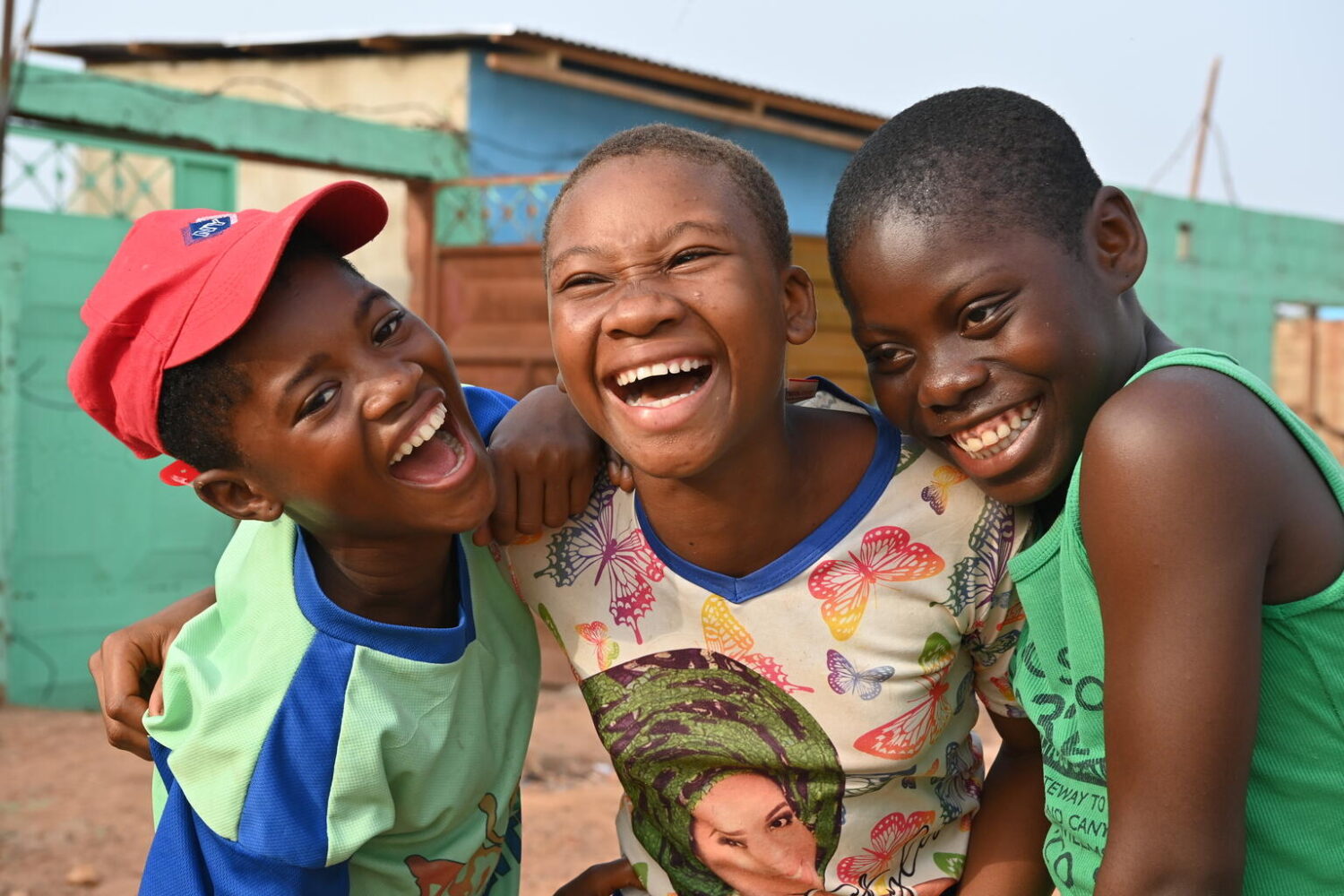
For every 18 doses of COVID -19 vaccines delivered to G20 countries, only 1 dose has been delivered to Low Income Countries in Africa, UNICEF finds
LONDON, 27 OCTOBER 2021 – For every 18 doses of Covid-19 vaccines delivered per person in G20 countries like the UK, only one dose has been delivered per person to low income countries in Africa** – according to research published today by the UK Committee for UNICEF (UNICEF UK).
The new analysis, conducted by science analytics company Airfinity, exposes the stark imbalance of access to vaccines between high-income and low-income countries in Africa.
Joanna Rea, Director of Advocacy, UK Committee for UNICEF (UNICEF UK) said:
“The worrying disparity in vaccine coverage between rich and poor countries marks the difference between life and death, economic recovery or stagnancy and the wellbeing and safety of children and their communities. Above all, it means everyone everywhere remains vulnerable to the pandemic and mutations of the virus.
“If we are to end the pandemic for good, rich countries must urgently address this gap in vaccine coverage by accelerating and delivering the commitments they have made.”
High Income Countries have pledged approximately 1.3 billion doses to address the global supply challenges, however 356 million doses have been released to COVAX to date.
Africa has largely been left without access to COVID-19 vaccines with less than 5 per cent of Africans fully vaccinated, many countries remain at high-risk of further outbreaks. UNICEF UK’s analysis also shows that for every 12 doses of COVID-19 vaccines delivered per person to the UK, only 1 dose has been delivered per person in Kenya – a country with a similar population size. Kenya is largely unvaccinated against Covid-19 with just 7% of the population having received the Covid-19 vaccine, in comparison with 73% of the UK population.
“African countries are facing significant challenges with vaccine coverage despite the resources and mechanisms needed to address this imbalance being available. High-income countries including the UK have made commitments to share vaccines, but these are not translating into action fast enough – these pledges must become a reality now if we are to end this pandemic,” Rea added.
Throughout Africa, many frontline workers remain unvaccinated. According to WHO, some 80,000 to 180,000 healthcare workers globally are estimated to have died from COVID-19 between January 2020 and May 2021. Less than 1 in 10 healthcare workers in Africa have been fully vaccinated and more than 128,000 have been infected with the virus. The agency has also found only one in seven COVID-19 infections are being detected in Africa, meaning the true number is likely much higher.
COVID-19 vaccine procurement mechanisms like COVAX and the African Union’s African Vaccine Acquisition Trust (AVAT) are the most equitable pathway to extending access to vaccines globally. These mechanisms prioritise the most vulnerable and frontline workers while ensuring healthcare and social systems are not strained by the response to the pandemic. For this to work, there is an urgent need for pledged doses to be delivered to COVAX.
Ahead of the G20 summit this weekend (30-31 October, Rome), UNICEF UK is calling for urgent acceleration on dose donations.
“This weekend’s summit provides an opportune moment for world leaders to act with urgency on dose donations, and for the UK Government to lead by example. If we are to protect the most vulnerable from the virus at home and abroad, the UK must urgently accelerate the delivery of the 100 million vaccine doses pledged at the G7 earlier this year – 80% of which was to COVAX,” added Rea.
“As the UK ramps up its booster vaccine programme and infection rates continue to rise in the UK, accelerating dose donation to low income countries is the necessary next step towards containing the spread and mutation of the virus, protecting the most vulnerable and ending the pandemic everywhere.”
As world leaders prepare to meet in Rome, 48* UNICEF Africa ambassadors and supporters from across the continent have also united in an open letter, calling for leaders to honour their promises to urgently deliver doses by December, writing, “the stakes could not be higher”.
Its signatories, including Angelique Kidjo, Arlo Parks, Davido, Tendai Mtawarira, Femi Kuti, Tony Elumelu, Ramla Ali, Winnie Byanyima and others, are calling on leaders to donate the pledged vaccines by December, along with the necessary resources to turn the vaccines into vaccinations.
# # #
Notes to editors:
** For every 18 doses delivered per capita to G20 countries only 1 dose has been delivered per capita to Low-income countries in Africa
Further findings from the data analysis of dose delivery comparisons show that:
- G20 countries have received 15 times more COVID-19 vaccine doses per person than Sub-Saharan Africa (I.e. excluding South Africa, which is a G20 country.)
- G20 countries have received 3-times more doses per person than all other countries combined
- Doses delivered per capita to the UK is 12x higher than doses delivered per capita in Kenya.
- Doses delivered per capita to Canada is 34x higher than doses delivered per capita in Sudan.
- Doses delivered per capita to Italy is 13x higher than delivered per capita in Uganda.
- Doses delivered per capita to Japan is 18x higher than delivered per capita in Ethiopia.
Visit https://www.unicef.org/coronavirus/g20-africa-equity-open-letter for the full text of the letter, signatories and other details. See the latest list of signatories here
For more information, contact UNICEF UK’s press office:
Yemi Lufadeju – [email protected]
Press office – [email protected] - 0207 375 6030
About UNICEF
UNICEF works in some of the world’s toughest places, to reach the world’s most disadvantaged children. Across more than 190 countries and territories, we work for every child, everywhere, to build a better world for everyone.
The UK Committee for UNICEF (UNICEF UK) raises funds for UNICEF’s emergency and development work for children. We also promote and protect children’s rights in the UK and internationally. We are a UK charity, entirely funded by supporters.
United Kingdom Committee for UNICEF (UNICEF UK), Registered Charity No. 1072612 (England & Wales), SC043677 (Scotland).
For more information visit unicef.org.uk. Follow UNICEF UK on Twitter, LinkedIn, Facebook and YouTube.


